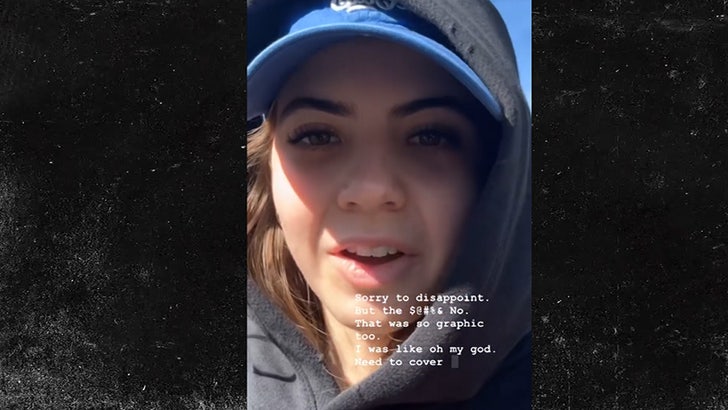The Truth About The Bobbi Althoff 'Leaked Video': A Deepfake Dilemma
In the fast-paced world of social media, trends emerge and dissipate in the blink of an eye. However, some trends leave a lasting impact, especially when they involve the misuse of advanced technology. Recently, podcaster and interviewer Bobbi Althoff found herself at the center of such a storm, trending across platforms like X (formerly Twitter) and Reddit for all the wrong reasons. Alleged "leaked" videos and images purporting to show her in sexually explicit acts went viral, sparking widespread discussion and concern. Yet, as Althoff herself swiftly clarified, these viral clips were nothing more than sophisticated AI-generated deepfakes, highlighting a chilling vulnerability in our digital landscape.
The Deepfake Incident: What Happened?
The Viral Spread and Misinformation
The incident began when an AI-generated video, often titled "Bobbi Althoff leak video," started circulating rapidly online. This video, along with various deepfake images, depicted a woman with Bobbi Althoff's face performing explicit acts. The content quickly spread across multiple social media platforms, including X, Reddit, and other corners of the internet, triggering widespread reactions from users. Many users, upon encountering the explicit content, quickly warned others not to view or share it, recognizing the potential for harm and misinformation.
The sheer speed at which this fake content disseminated underscored the challenges social media platforms face in moderating and containing malicious AI-generated material. Despite violating platform rules, the video continued to gain traction, creating a significant buzz around Althoff's name, albeit for a distressing reason. For a period, Bobbi Althoff was trending not for her successful podcast or interviews, but because she had fallen victim to vile, seemingly AI deepfake porn images.
Bobbi Althoff's Swift Response
As the deepfake content continued to trend, Bobbi Althoff, known for her "Really Good Podcast" and her unique interviewing style, wasted no time in addressing the situation. Taking to her Instagram stories on Wednesday, the 26-year-old podcaster shared a short clip and later a more lengthy video, unequivocally clarifying the situation. She directly confronted the rumors, stating, "Hate to disappoint you all, but the reason I'm trending is..." and further adding, "The reason I’m trending is [because of a sexually explicit video]... but she’s calling it out as fake."
Althoff's response was clear and concise: the video was not real, and she was not the person depicted in it. She firmly called it out as an AI-generated deepfake, superimposing what appeared to be her face onto another individual. Her quick and decisive denial was crucial in combating the spread of misinformation and protecting her reputation against the malicious content. Her statement served as a vital public service announcement, not just for her followers, but for anyone encountering such fabricated content online.
The Alarming Rise of AI Deepfakes
A Growing Threat to Public Figures
Bobbi Althoff's experience is not an isolated incident. Her case tragically highlights a growing and alarming trend: the use of artificial intelligence to create highly realistic, non-consensual deepfake content, often sexually explicit, targeting public figures. Just one month prior to Althoff's incident, similar AI-generated deepfakes of pop superstar Taylor Swift went viral on X, sparking massive backlash and bringing the issue to the forefront of public discussion.
Deepfake technology has advanced to a point where it can convincingly superimpose a person's face onto another body, making it incredibly difficult for an untrained eye to distinguish between real and fake. This technology, while having legitimate applications in film and entertainment, poses a severe threat when misused. Celebrities, influencers, and even ordinary individuals are increasingly becoming victims of this digital manipulation, facing reputational damage, emotional distress, and a profound violation of privacy.
The Commercialization of Deepfakes
Perhaps one of the most disturbing aspects of this trend is the emergence of a dark economy around deepfake content. Reports indicate that the maker of one fake Althoff video offered a 20-minute version of it for sale on a deepfake forum, priced at $10 and payable via PayPal. This detail reveals a chilling reality: not only is deepfake content being created, but it's also being monetized, turning the violation of privacy into a profitable venture for malicious actors.
This commercialization adds another layer of complexity to the problem, as it incentivizes the creation and distribution of such content. The ease with which these videos can be produced and sold, coupled with the anonymity offered by certain online forums, makes it a lucrative and low-risk endeavor for those intent on exploiting individuals through digital means. The Bobbi Althoff incident, much like the Taylor Swift deepfakes, underscores the chilling vulnerabilities within our digital ecosystem when advanced technology falls into the wrong hands.
Broader Implications: Privacy, Platforms, and the Future
Challenges for Social Media Platforms
The rapid spread of the fake Bobbi Althoff video on X, despite the platform's stated rules against sexually explicit deepfakes, underscores the significant challenges social media companies face. X, in particular, has been under scrutiny for its struggles in cracking down on deepfakes and other forms of harmful content. The sheer volume of content uploaded daily, combined with the sophistication of AI-generated fakes, makes content moderation an incredibly complex and resource-intensive task.
Platforms are often reactive rather than proactive, removing content only after it has been reported and has already gained significant traction. This "whack-a-mole" approach is insufficient to combat the rapid dissemination of deepfakes, which can go viral in hours, causing irreparable harm before any action is taken. The incident serves as a stark reminder that social media companies must invest more in advanced detection technologies and more robust enforcement mechanisms to protect their users.
The Erosion of Trust and Personal Security
The case of Bobbi Althoff’s deepfake incident raises important questions about the privacy and security of personal content in the digital age. When anyone, from a celebrity to an everyday individual, can become the target of such realistic and malicious fabrications, it erodes public trust in online information and creates a pervasive sense of insecurity. Users are left wondering how to discern truth from fiction, and victims are left to grapple with the emotional and professional fallout of content that never truly existed.
The incident is a stark warning about the potential for AI to be weaponized against individuals, causing reputational damage, emotional distress, and even financial harm. It highlights the urgent need for greater digital literacy among the public, so that individuals can critically evaluate the content they encounter online, rather than blindly accepting or sharing it.
What Can Be Done?
User Awareness and Critical Thinking
One of the most immediate and accessible lines of defense against deepfakes is public awareness. Users must be educated to be skeptical of viral content, especially explicit "leaks" involving public figures. Developing critical thinking skills to question the authenticity of images and videos, and seeking verification from credible sources, is paramount. If something seems too shocking or sensational, it's often worth a second look and a moment of doubt.
For instance, in Bobbi Althoff's case, her clear and public denial on Instagram served as the definitive source of truth. Users who followed her directly or checked reputable news outlets would have quickly learned the content was fake. Promoting responsible sharing practices and encouraging users to report suspicious content are also vital steps.
Technological and Legal Measures
Beyond individual responsibility, there's a pressing need for advancements in technology and law. Developers are working on AI detection tools that can identify the subtle artifacts left by deepfake algorithms, though this is an ongoing arms race as deepfake technology itself evolves. Social media platforms must prioritize the deployment of these tools and implement stricter policies with swift enforcement against creators and distributors of non-consensual deepfakes.
Legally, many countries are still catching up to the realities of AI-generated harm. Stronger legislation is needed to criminalize the creation and distribution of non-consensual deepfake pornography, providing victims with legal recourse and deterring potential perpetrators. International cooperation is also essential, as deepfakes often originate in one jurisdiction and spread globally.
In summary, the "Bobbi Althoff leaked video" was a hoax, a malicious AI-generated deepfake that went viral across social media platforms. Bobbi Althoff herself swiftly and clearly denied its authenticity, confirming it was a fabricated piece of content. This incident serves as a potent reminder of the escalating dangers posed by AI deepfakes, highlighting the urgent need for increased digital literacy, robust platform moderation, and stronger legal frameworks to combat the pervasive threat of digital misinformation and privacy violations in our increasingly interconnected world.
What Is The Leaked Bobbi Althoff Video Going Viral On Social Media? The

Bobbi Althoff's Leaked AI Deepfake Video Was Likely Made This Way

Bobbi Althoff Reacts to 'Leaked' NSFW Video, Speaks Out After Going